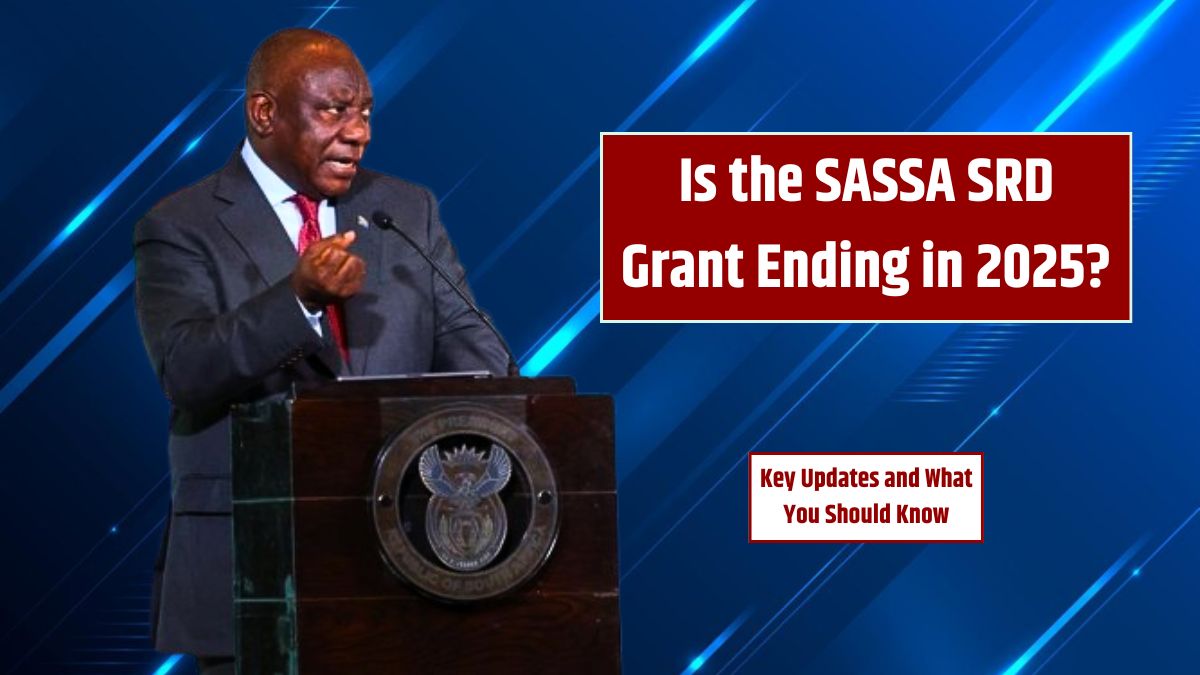The SASSA Social Relief of Distress (SRD) Grant has been a safety net for millions of South Africans since the height of the COVID-19 pandemic. But now, it’s officially coming to an end in March 2025. This shift has sparked a lot of questions—and concerns—especially for the over 7.5 million people who rely on the R350 monthly payment. If you’re one of them, here’s what you need to know and how to prepare for what’s coming next.
Overview
Let’s start with the basics. The SRD Grant, which was introduced in 2020, was never meant to be permanent. It was designed as emergency aid for unemployed individuals not receiving any other form of social support. Fast forward to 2025, and the government is now shifting gears toward long-term solutions like employment and economic empowerment.
| Key Points | Details |
|---|---|
| Grant End Date | March 2025 |
| Reason for Termination | Shift to job creation and long-term economic strategies |
| Current Beneficiaries | Over 7.5 million South Africans |
| Future Measures | Public employment programs, support grants, and Basic Income debates |
| Official Info Source | Visit the official SASSA website for updates |
Grant
The SRD Grant offered R350 per month to unemployed adults with no other income. Though modest, it helped cover basic needs like food, transport, and small household expenses.
Unlike permanent grants (like Child Support or Older Persons), the SRD Grant didn’t require applicants to have dependents or a disability—just proof of unemployment and financial need. This made it accessible to a large segment of the population hit hard by lockdowns and job losses.
Impact
The SRD Grant’s impact is hard to overstate. Every month, it provided relief to millions of households and injected billions into local economies.
- Supported over 7.5 million people monthly
- Prevented deep poverty and hunger during the pandemic
- Supported informal traders and small businesses through local spending
Nomsa’s Story
Nomsa, a single mother from Soweto, used her R350 payments to feed her two children and eventually started a small street food stall. “This grant gave me hope,” she says. “It helped me survive when there was nothing else.”
Why
So, why is the SRD Grant ending now?
1. Budget Constraints
About 60% of South Africa’s national budget goes to social support. Extending a temporary grant like SRD indefinitely would require tax increases or reallocation of other funds, which isn’t sustainable in the long run.
2. Shift to Employment
The government wants to transition from “relief” to “recovery.” That means focusing on job creation, especially in public works and small business support. The idea is to help people earn income rather than rely on ongoing grants.
3. It Was Temporary
The SRD Grant was always meant to be short-term. It has already been extended multiple times, and now the government feels the time has come to phase it out.
Future
While the SRD Grant is ending, several initiatives are in the pipeline:
Public Employment
The Expanded Public Works Programme (EPWP) and Community Works Programme (CWP) are being expanded to create jobs in construction, maintenance, and community development.
Basic Income Grant
Talks are ongoing about introducing a Basic Income Grant to replace or supplement SRD in the long term. This would offer broader support but is still under review.
Social Support Enhancements
Existing grants like the Child Support Grant or Care Dependency Grant may see improved access or increased amounts to help cover more families in need.
Challenges
Losing the SRD Grant will be tough for many. Here’s how to get ready:
Expected Challenges
- Loss of a steady income
- Increased risk of poverty or hunger
- Strain on local economies in poorer communities
How to Prepare
- Stay informed by checking SASSA’s official website
- Look for work through government job programs
- Upskill with free training courses or workshops
- Join savings groups or stokvels for financial stability
- Get support from NGOs or local community projects
Vision
The end of SRD is part of a broader government plan to reduce dependency on grants and promote economic growth. This includes:
- Investing R3.4 billion in public jobs in 2024/25
- Expanding entrepreneurship and access to funding for small businesses
- Reworking the social welfare system for long-term sustainability
Support
This is also a call for communities and private sectors to get involved. NGOs, businesses, and community groups can help fill the gap by:
- Offering training and mentorship
- Providing microloans or business tools
- Partnering with government for job creation projects
FAQs
When is the SRD Grant ending?
The grant will end in March 2025.
Why is the SRD Grant ending?
It’s part of a shift toward job creation and long-term support.
Will anything replace the SRD Grant?
Public job programs and possibly a Basic Income Grant.
What can I do to prepare?
Stay informed, look for work, and build financial support systems.
Where can I find updates?
Visit the official SASSA website regularly for news and updates.






